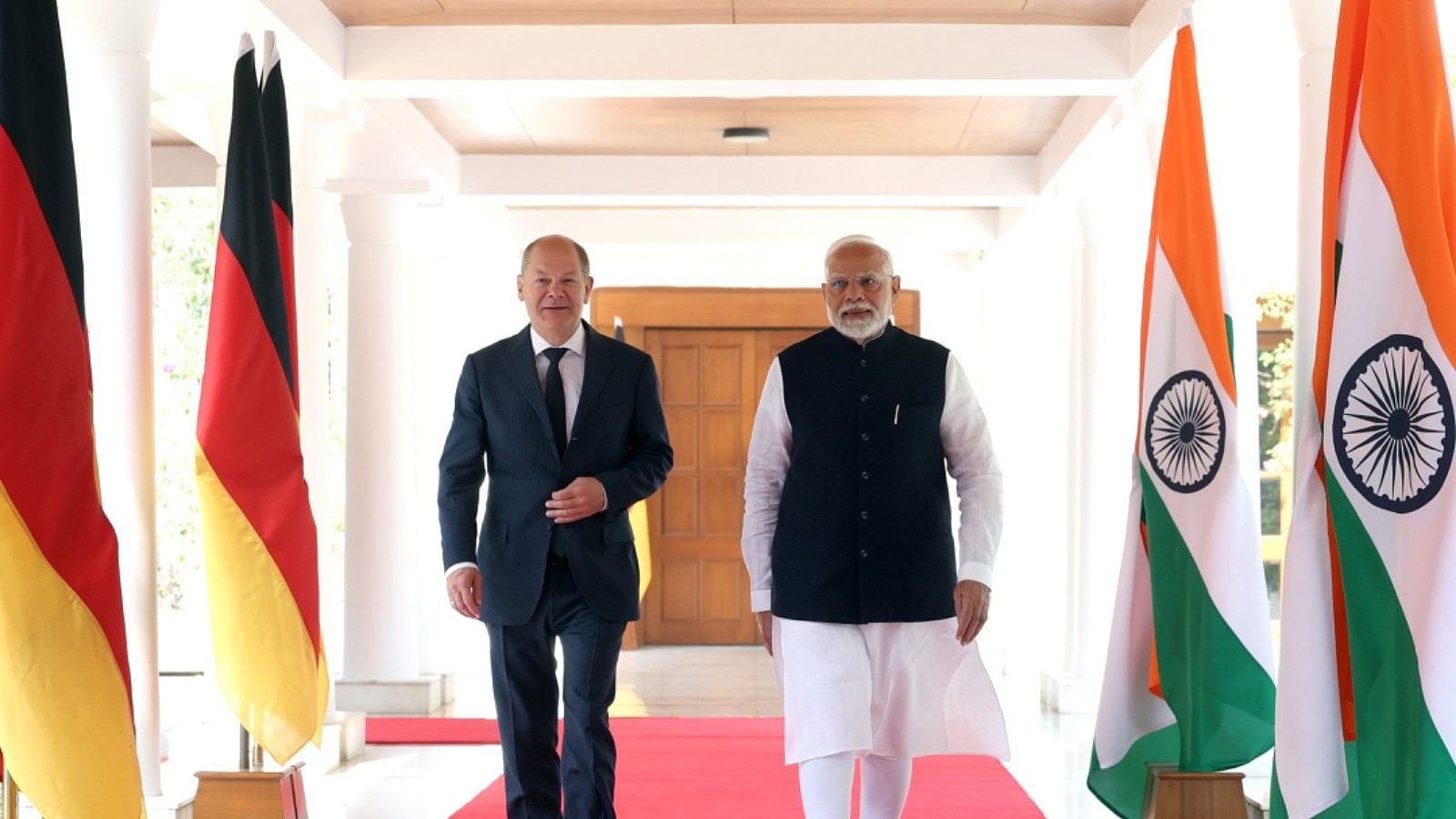
PM Modi welcomed German Chancellor Olaf Scholz for a one-on-one meeting at his official residence in New Delhi.
Credit: X/@narendramodi
New Delhi: There are serious concerns about the rule of law and freedom of navigation in the Indo-Pacific region, Prime Minister Narendra Modi said in New Delhi on Friday, sending out a message to Beijing just two days after his talks with Chinese President Xi Jinping at Kazan in Russia.
“We both agree on ensuring freedom of navigation and adherence to the rule of law in accordance with international laws in the Indo-Pacific region,” Modi said after a meeting with German Chancellor Olaf Scholz, who arrived in New Delhi on Thursday for a three-day visit to India. Scholz echoed him, saying that Germany and India needed to “stand up for respect for international order, freedom of maritime rules”.
"The ongoing conflicts in Ukraine and West Asia are a matter of concern for both nations. India has always been of the view that war cannot be a solution to problems. India is ready to make every possible contribution for the restoration of peace,” said Modi.
Scholz added: “I expressly support India in advocating a lasting, just peace in Ukraine and using its reliable relations with all parties to contribute to it.”
They condemned Hamas’s terror attacks on Israel in October 2023, but also expressed concerns over loss of civilian lives in Gaza due to the military operations launched by Israel.
The meeting between the Prime Minister and the German Chancellor saw India and Germany agreeing on 18 documents, including a roadmap on innovation and technology, a roadmap for cooperation in the field of green hydrogen and a Mutual Legal Assistance Treaty in Criminal Matters. Germany agreed to increase the number of visas granted to skilled workers from India to 90,000 in a year from the existing level of 20,000.
Modi joined Scholz in sending out the message to Beijing just days after he met Xi on the sideline of the BRICS summit at Kazan in Russia. It was the first meeting between Modi and Xi in five years and it took place after New Delhi and Beijing worked out an agreement earlier this week for an arrangement for patrolling by the Indian Army and the Chinese People’s Liberation Army along the Line of Actual Control (LAC) at Depsang and Demchok in eastern Ladakh. The agreement marked the end of the more-than-four-year-long military stand-off along the LAC.
China’s maritime muscle-flexing in East and South China Seas as well as in the Taiwan Strait has prompted the international community to expressing concerns. Though an Arbitral Tribunal constituted under the 1982 UNCLOS had delivered a unanimous decision several years ago rejecting China’s expansive claims on the South China Sea, Beijing had refused to adhere to it.
Scholz and Modi later addressed the 16th Asia Pacific Conference of German Businesses. “The Korean Peninsula, the South and East China Sea all remain flash points of potential conflicts, even though we all hope that these conflicts can be contained...Let us do whatever we can to bring about political solutions to these conflicts – solutions that are based on international law and the principles of the UN Charter,” the German Chancellor said.
The case of three-year-old Indian child Ariha Shah, who has been in foster care in Germany, was raised during the meeting between Modi and Scholz, Foreign Secretary Vikram Misri said.
